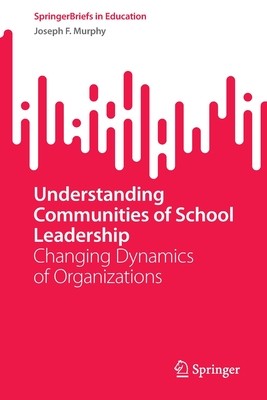
- We will send in 10–14 business days.
- Author: Joseph F Murphy
- Publisher: Springer
- ISBN-10: 3031237587
- ISBN-13: 9783031237584
- Format: 15.6 x 23.4 x 0.7 cm, softcover
- Language: English
- SAVE -10% with code: EXTRA
Reviews
Description
This book examines the evolution of schooling from bureaucracy and hierarchy to post-industrial schools, and places teachers' leadership on center stage at the same time. That is, it asks teachers to deepen leadership in their classrooms and with other teachers. The book carries education and schooling from formal control to a social influence process and addresses the deeply rooted difficulty of focusing too much energy on content. It reveals the strong power of internal and external context and helps educators implant the idea of the school not as a fixed, immutable home, but as a relatively deep social process. It shows how co-leadership comes alive in schools.
Communities of schooling is one of the three most critical developments in education in the last 140 years. When it is linked with the two other fundamental reorientations in schooling - "dispersed ownership" and "constructivist work" - it becomes the most powerful force in education since the 1700s. This book shows how communities of schooling replace the earlier pillars of "learning as telling," "hierarchy of control," and "non-democratic influence."The work also explains the meaning and understanding of school work as a social influence process where all school-based educators exert power, but at different levels. The idea of enhancing individual and collective capacity through interdependency, shared work, and collective responsibility is unpacked.
EXTRA 10 % discount with code: EXTRA
The promotion ends in 20d.17:35:32
The discount code is valid when purchasing from 10 €. Discounts do not stack.
- Author: Joseph F Murphy
- Publisher: Springer
- ISBN-10: 3031237587
- ISBN-13: 9783031237584
- Format: 15.6 x 23.4 x 0.7 cm, softcover
- Language: English English
This book examines the evolution of schooling from bureaucracy and hierarchy to post-industrial schools, and places teachers' leadership on center stage at the same time. That is, it asks teachers to deepen leadership in their classrooms and with other teachers. The book carries education and schooling from formal control to a social influence process and addresses the deeply rooted difficulty of focusing too much energy on content. It reveals the strong power of internal and external context and helps educators implant the idea of the school not as a fixed, immutable home, but as a relatively deep social process. It shows how co-leadership comes alive in schools.
Communities of schooling is one of the three most critical developments in education in the last 140 years. When it is linked with the two other fundamental reorientations in schooling - "dispersed ownership" and "constructivist work" - it becomes the most powerful force in education since the 1700s. This book shows how communities of schooling replace the earlier pillars of "learning as telling," "hierarchy of control," and "non-democratic influence."The work also explains the meaning and understanding of school work as a social influence process where all school-based educators exert power, but at different levels. The idea of enhancing individual and collective capacity through interdependency, shared work, and collective responsibility is unpacked.


Reviews